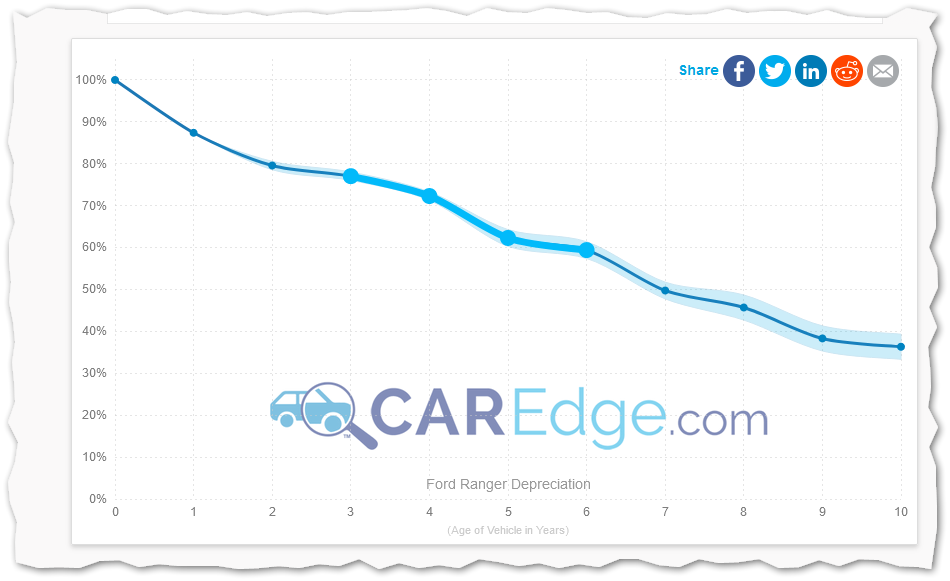I want to acquire a car and I think a lease would make sense, because my use case is low annual mileage and I only want it for two or three years. I do NOT want a new car, because used is fine and I'd rather save the money.
Using this depreciation calculator, I researched the drop in value of a car from, say, year 3 to year 6 and it looks something like this:
When I looked up a more expensive car, the numbers were higher, but the shape of the curve was roughly the same and the difference between the starting and ending values was about the same.
When you lease a car, do you pay for anything other than the change in value of the car over the lease period? If an expensive car loses the same dollar value over 3 years as a cheaper car, does that mean that the monthly payment would be the same?!
Example:
A 3 year old vehicle costs $35,000 and is estimated to be worth $28,000 3 years from now.
Another 3 year old vehicle costs $28,000 and is estimated to be worth $21,000 3 years from now.
(Round numbers, of course.)
The dollar value depreciation is the same, so does that mean the cost of the lease is the same? Or are there other costs that are proportional to the value of the vehicle?

